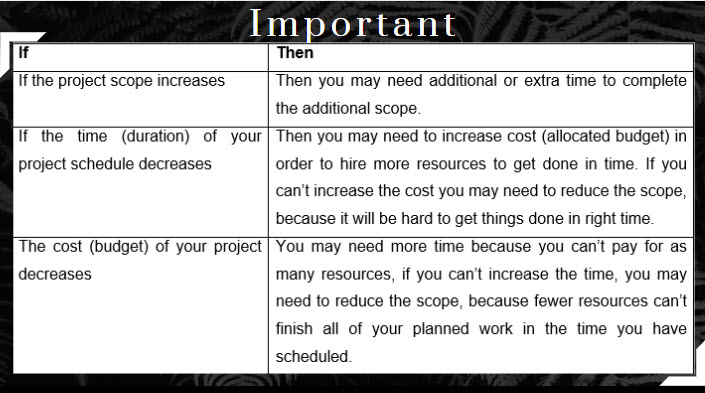It is very important to understand, what is a Project?
A Project is a
Temporary work performed to produce a unique product or service.
Each project has a Start and End date.
Remember that key ingredients for work to be consider a project is that its need to be temporary in nature has definite start and end date and it needs to produce a unique product or service. Projects are unique in nature. They do not involve repetitive processes.
Every project undertaken is different from the last in one way or the other, whereas operational activities often involve undertaking repetitive (identical) processes. Project have a defined timescale. Each Project undertaken have a clearly specified start and end date within which the deliverables must be produced to meet a specified customer requirement.
Let us understand project with a simple example - Delivering a seminar:
Any work that is ongoing and repetitive or which is not temporary and has no well-defined end date and that does not produce any unique product or service is not a project.
Let us look at some examples
Exercising daily is not a project. It is an ongoing endeavor with no specific end date also when you exercise you does not produce anything unique you stay healthy.
Routine car maintenance is also not a project. There is no specific end date for when you will start maintaining your car, also maintaining your car does not produce anything unique, it keeps your car running smoothly.
Remodeling your car is a project but maintaining your car is not a project.
Now that we have a good understanding of what constitutes the project and what doesn’t let’s move to project management.
What is project management?
In simple term, it’s anything you need to manage a project from start to finish. According to Project Management Institute Project management is the application of knowledge, skills, tools and techniques to project activities to meet project requirements.
During the project, the project engineer is engaged in numerous activities which make him the master of almost of every field. Project management is the process of planning, organizing, managing tasks and resources to accomplish an objective, usually within constraints of time, resources, or cost.
Time – This is the most common project restraint. Know the deadline for your project.
Scope – This includes the quality, functions, and features of your product or service and the work required to deliver your product or service.
Cost - This includes the people and the equipment that do the work, the materials they use, and anything else that requires time or money. Start-up: Different people from various organizations are grouped together to form the project team and their coordinate efforts lead to execution of the project successfully. They include: • Owner/Client who will finally own the project and operate the chemical plant. • Contractors/Sub-contractors who directly execute the project based on engineering documents. • Suppliers/Vendors providing the equipment’s and materials required by contractors to build the project as per the "Material Requisition". • Financial Institutions. • Many other organizations(shipping department, customs etc) A well-defined "contract" is a very important element to establish the co-operative relationship between different stakeholders. It is said that a well written contract gives the direction to all the stakeholder’s involved in the project and act like a radar. The contract should clearly define the legal, financial and technical aspects of the project to avoid future conflict’s (especially owner and contractor).

You would also like the article
"Site Selection for setting up a Chemical Plant".
".